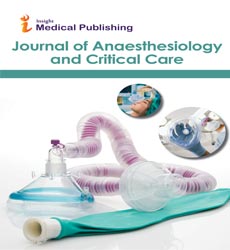Viability and validity of the bispectral index to measure sleep in patients in the intensive care unit.
Abstract
Objective: To investigate the viability of the bispectral index in the sleep evaluation of critically ill patients and to quantify the associations of sleep parameters measured by this index with the Richards-Campbell Sleep Questionnaire and environmental noise.
Methods: This was a cross-sectional observational study that evaluated critically ill adults with diseases of low or moderate severity. The following were measured: total sleep volume and time, deep sleep volume and time, continuous sleep volume and time, sleep onset latency, and environmental sound pressure level. The subjective perception of sleep was evaluated with the Richards-Campbell Sleep Questionnaire the morning after each night of observation.
Results: Patients had a low total sleep time (234 minutes), a predominance of superficial sleep stages, and little deep sleep (1.7 minutes). The total, deep, and continuous sleep volumes were 3,679, 9.4, and 3,143 (bispectral index units × minutes), respectively. The sleep latency was 94 minutes. The mean score of the Richards-Campbell Sleep Questionnaire was 57.9. Total sleep volume, total sleep time, and continuous sleep volume were weakly correlated with the Richards-Campbell Sleep Questionnaire depth of sleep domain score, overall sleep quality domain score, and total score. Total volume, total time, and continuous volume were moderately correlated with the occurrence of awakenings domain score.
Conclusion: The bispectral index is an instrument with limited viability to monitor the sleep of lucid patients and patients with low to moderate disease severity in the intensive care unit. Patients with higher total sleep volume, total sleep time, and continuous sleep volume had better overall sleep perception.
Open Access Journals
- Aquaculture & Veterinary Science
- Chemistry & Chemical Sciences
- Clinical Sciences
- Engineering
- General Science
- Genetics & Molecular Biology
- Health Care & Nursing
- Immunology & Microbiology
- Materials Science
- Mathematics & Physics
- Medical Sciences
- Neurology & Psychiatry
- Oncology & Cancer Science
- Pharmaceutical Sciences
